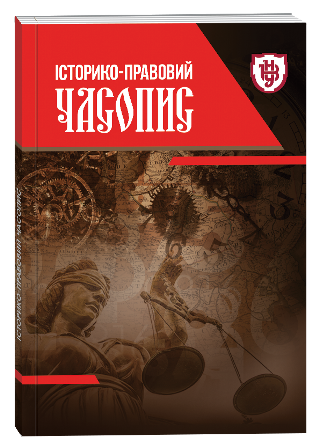The Legal Analysis of the Causes of Labor Disputes
Keywords:
collective labour disputes, causes of disputes, ways to overcome disputesAbstract
In the article the main causes of disagreements between the subjects of social-labor relations are defined. Norms of the legislation and the statistics, on which four main groups of reasons to encourage the emergence of collective labor disputes were defined, are analyzed, namely: the reasons of a subjective nature, objective nature, organizational and legal nature, organizational and economic nature. It is proposed to establish a particular measure of responsibility for the employer for late responding to the differences that have emerged, and for no warning the relevant authorities about their appearance. This would reduce the number of labor disputes, their faster resolving with minimal time and material resources.
References
Кричевський Р. Л. Если вы руководитель / Р. Л. Кричевський. – М. : Дело, 1993. – 242 с.
Беззубко Л. В. Социально-трудовые конфликты в Донецкой области : монография / Л. В. Беззубко, В. М. Лобас. – Донецк : ДонНУ, 2003. – 219 с.
Миронов В. И. История трудового права: теорія і практика / В. И. Миронов // Государство и право. – 1998. – № 12. – С. 87–91.
Нарошенко І. Деякі аспекти розгляду трудових спорів / І. Нарошенко // Довідник кадровика. – 2002. – № 4. – С. 23–31.
Смірнова С. Причини виникнення колективних трудових спорів / С. Смірнова // Бюлетень НСПП. – № 11. – 2004. – С. 34–35.
Лоза О. Колективно-трудові спори: теорія і практика / О. Лоза. – К. : ПРОІНФОРМ ФПУ, 2003. – 52 с.
Лазор В. В. Поняття трудових спорів, конфліктів та їх позовний і непозовний характер / В. В. Лазор // Право України. – 2002. – № 7. – С. 90–94.
Downloads
Published
How to Cite
Issue
Section
License

This work is licensed under a Creative Commons Attribution-NonCommercial 4.0 International License.







